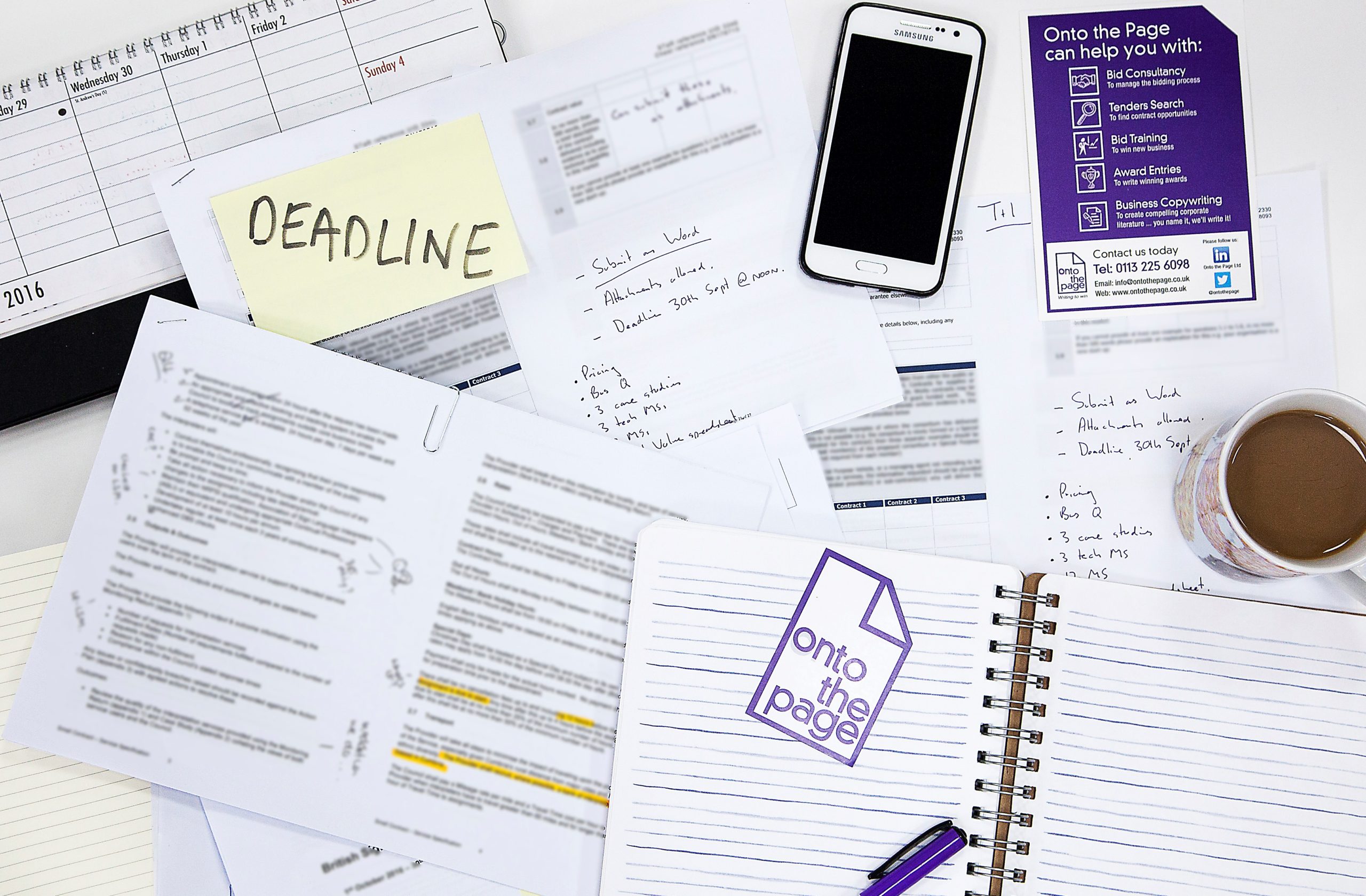
New Year’s resolutions for bidders
Yes, it’s a bit of a dry topic – January and tendering – however, the public sector spends £200bn via procurement every year (25% of this is awarded to SMEs) and billions are spent on private sector contracts through formal tender processes, so it’s a subject that’s well worth thinking about.
Here are some resolutions you can make that will help you secure more clients and contracts through tendering – and unlike the 80% of resolutions the nation gives up on by February, you’ll be able to maintain these all year!
Resolution 1: I will actively look for opportunities
There are 1000s of public sector tender opportunities published every week.
You can access all public sector opportunities for free via websites and portals such as Contracts Finder, ProContract, Delta, and In-Tend; once registered, you’ll be able to create ‘alerts’ which send sector-specific opportunities to your email.
If you don’t have time to look, paid services will save you time and effort in searching by ‘short-listing’ opportunities based on location, contract value, and sector.
Resolution 2: I will not bid for everything
If your approach is to bid for as much as possible hoping that you’ll win something, then it’s time to turn over a new leaf – not only is this a massive waste of time and resources (i.e. money!), it’s demoralising for your team.
Instead, before you bid, ask yourself: ‘Can I deliver what the buyer wants?’, ‘Can I deliver it profitability?’, and lastly (but crucially) ‘Do I have a winning proposal when compared to my competitors?’.
Only if you can answer a resounding ‘yes’ to all three should you go ahead. This strategy allows us to consistently achieve win rates of >80% for our clients, and is the tip that our workshop attendees rank as most useful.
Resolution 3: I will be organised
Though a tender can be completed in a couple of days, if you start working on it just before the deadline it’s unlikely you’ll have the time to write a winning tender. Your competition will have a massive head start, and you probably won’t have time to collect the case studies and evidence that would set your tender apart from other bidders.
And if you can’t submit a winning tender, what’s the point?
View each bid as a project; give it a leader and get them to own it. As soon as possible, start delegating sections to key contributors, and ask any clarifications. It’s common to underestimate the time and effort required to write a winning bid by 50% – so whatever you think it is going to take, double that figure!


